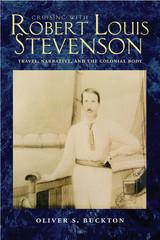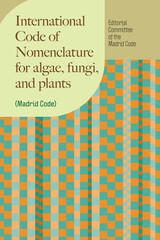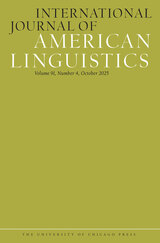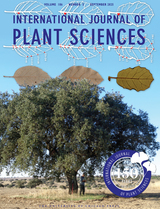2 books about Colonial Body

Cruising with Robert Louis Stevenson
Travel, Narrative, and the Colonial Body
Oliver S. Buckton
Ohio University Press, 2007
Cruising with Robert Louis Stevenson: Travel, Narrative, and the Colonial Body is the first book-length study about the influence of travel on Robert Louis Stevenson’s writings, both fiction and nonfiction. Within the contexts of late-Victorian imperialism and ethnographic discourse, the book offers original close readings of individual works by Stevenson while bringing new theoretical insights to bear on the relationship between travel, authorship, and gender identity in the Victorian fin de siècle. Oliver S. Buckton develops “cruising” as a critical term, linking Stevenson’s leisurely mode of travel with the striking narrative motifs of disruption and fragmentation that characterize his writings. Buckton traces the development of Stevenson’s career from his early travel books to show how Stevenson’s major works of fiction, such as Treasure Island, Kidnapped, and The Ebb-Tide, draw on innovative techniques and materials Stevenson acquired in the course of his global travels. Exploring Stevenson’s pivotal role in the revival of “romance” in the late nineteenth century, Cruising with Robert Louis Stevenson highlights Stevenson’s treatment of the human body as part of his resistance to realism, arguing that the energies and desires released by travel are often routed through disturbingly resistant or darkly comic corporeal figures. Buckton gives extensive attention to Stevenson’s writing about the South Seas, arguing that his groundbreaking critiques of European colonialism are formed in awareness of the fragility and desirability of Polynesian bodies and island landscapes. Cruising with Robert Louis Stevenson will be indispensable to all admirers of Stevenson as well as of great interest to readers of travel writing, Victorian ethnography, gender studies, and literary criticism.
[more]

Disabled Empire
The Colonial Body in First World War Britain
Hilary R. Buxton
University of Chicago Press
Explores the minute interactions between military servicemen and medical caregivers during World War I to tell a broader story about race, colonialism, labor, and global health.
Disabled Empire examines how imperial precedents and racial ideologies shaped the medical treatments that the British state offered to several million Black and brown servicemen during World War I. In recovering the voices and experiences of these soldiers, Hilary R. Buxton illustrates how they navigated the institutional culture of the imperial military and how they helped to shape health and welfare systems well beyond the interwar period.
The Great War was the first time that troops and volunteers from nearly all reaches of the Empire participated in the war effort side-by-side. Despite official attempts at segregation, colonial troops met in trenches, mobile camps, casualty clearing stations, hospital ships, and convalescent homes. Just as importantly, those organizing treatment encountered men of different ethnicities, religions, and cultures from across and beyond the British Empire. For British officials, this moment offered an opportunity to remake colonial efficiency and medical knowledge. Yet, as Buxton shows, colonial servicemen were not passive subjects in a wartime laboratory: they were vocal participants who demanded a say in the therapies prescribed to them, the rations they required, the psychiatric care they received, and the prosthetics with which they were fitted. Together, these encounters profoundly remade colonial relations, reshaping imperial science, administration, and colonial understandings of subjecthood.
Disabled Empire pushes literature on the war and medicine outside its national, Eurocentric focus to confront the colonial logic of global health inequity.
Disabled Empire examines how imperial precedents and racial ideologies shaped the medical treatments that the British state offered to several million Black and brown servicemen during World War I. In recovering the voices and experiences of these soldiers, Hilary R. Buxton illustrates how they navigated the institutional culture of the imperial military and how they helped to shape health and welfare systems well beyond the interwar period.
The Great War was the first time that troops and volunteers from nearly all reaches of the Empire participated in the war effort side-by-side. Despite official attempts at segregation, colonial troops met in trenches, mobile camps, casualty clearing stations, hospital ships, and convalescent homes. Just as importantly, those organizing treatment encountered men of different ethnicities, religions, and cultures from across and beyond the British Empire. For British officials, this moment offered an opportunity to remake colonial efficiency and medical knowledge. Yet, as Buxton shows, colonial servicemen were not passive subjects in a wartime laboratory: they were vocal participants who demanded a say in the therapies prescribed to them, the rations they required, the psychiatric care they received, and the prosthetics with which they were fitted. Together, these encounters profoundly remade colonial relations, reshaping imperial science, administration, and colonial understandings of subjecthood.
Disabled Empire pushes literature on the war and medicine outside its national, Eurocentric focus to confront the colonial logic of global health inequity.
[more]
READERS
Browse our collection.
PUBLISHERS
See BiblioVault's publisher services.
STUDENT SERVICES
Files for college accessibility offices.
UChicago Accessibility Resources
home | accessibility | search | about | contact us
BiblioVault ® 2001 - 2025
The University of Chicago Press









